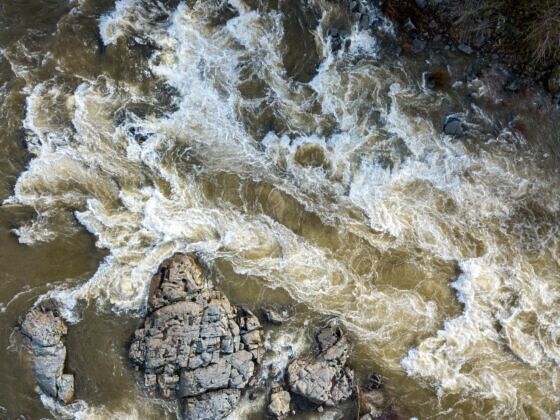THE BACK DOOR opened and there stood a man, fresh out of the river below our home. He was at least a foot taller than anyone in the house, had gray hair tumbling around his face in dreads, and was wearing plaid flannel. A living Coloma legend, he was known for stunts like this. Living alone in a house with no heat and without a car, he had walked a mile to the river, shed his clothes, put them in a waterproof bag, then swam across the whitewater to reach our side. His heels crushed soft moss, rotting buckeyes, and golden leaves as he hiked up to our house hidden among the oak trees. My aunt Mimi, upon seeing him in teh doorway dripping wet and grizzled, immediately invited him in.


“How did you get here? Why are you wet? You must be starving. You better move quick because everyone here knows how to eat. Would you like a beer?” She swarmed like a bee, trying to make sense of him. My dad swooped in to save him and gave him a pat on the back.
“Jimbo, welcome. You made it out alive! How was the water today?” Jimbo responded so quietly that I could hardly hear him from my perch at the counter, where buttery mashed potatoes and salad with tomatoes from our garden was being laid out by my aunts, as their husbands talked seriously about the state of the turkey.
“Thanks for having me, Austin. Its been a long time, man. The river was cold, man. Real cold. But it felt great, it really did,” he said as he cracked a wide, grimy smile.
I could almost see them as they used to be, living in tents on the riverbanks of Coloma. My dad, the young punk, and Jimbo, the river guide everyone wanted to be. Every summer, the small town watering holes are filled with tanned, lean men and women in their twenties, making a living paddling tourists down the American River. Jimbo and my dad were some of the first to do it.
Now my dad is a straight-laced math and science teacher taking care of his family and kayaking down the river when he has days off in the summer. Jimbo can still be seen in those watering holes, with the young raft guides who see him as an eccentric god. To me, Jimbo was a storybook character. I’d heard tales and seen pictures as a child, but I couldn’t be sure that he existed. As I watched them talk, it was obvious that both men were happy, but the happiest when they talked about the river.
Shortly after his arrival, Jimbo stood alone, sipping his beer periodically and looking at everyone, somewhat contently. I considered for a second going up to him and starting a conversation, but his quiet demeanor intimidated me. I smeared some brie on a cracker and when I looked up, Jimbo was outside on the deck, gazing down at the river.